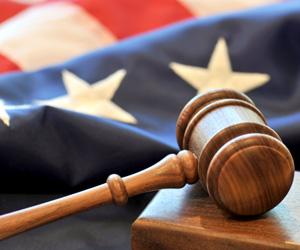
March 4, 2013 – Danny Turner was convicted in 2010 for distributing cocaine in Milwaukee, though he argued that it was a constitutional violation to let a crime lab supervisor testify in place of the actual crime lab chemist who tested the drugs.
Recently, the U.S. Court of Appeals for the Seventh Circuit affirmed the conviction – for the second time – after the U.S. Supreme Court vacated the first decision and remanded for reconsideration in light of its 2012 decision in Williams v. Illinois.
Viewing Williams as “somewhat challenging to apply,” the Seventh Circuit Court of Appeals in United States v. Turner, No. 08-3109 (March 4, 2013) concluded that any constitutional violation of Turner’s rights was harmless error.
“[T]here was other evidence indicating that the substances were crack cocaine,” wrote Judge Ilana Rovner. “We are therefore confident that any error did not affect the outcome of the trial.”
The Sixth Amendment to the U.S. Constitution, in a provision known as the Confrontation Clause, gives criminal defendants a right to confront witnesses.
After Turner’s arrest, the Wisconsin Crime Laboratory chemist confirmed that the substances he sold to undercover police contained cocaine base. But that chemist was on maternity leave for Turner’s trial. The chemist’s supervisor testified instead.
The supervisor said the chemist followed standard testing procedures, and based on the data, the substances contained cocaine base. Allowing this testimony regarding another chemist’s analysis, Turner argued, violated the Sixth Amendment.
The Seventh Circuit Court of Appeals rejected Turner’s argument and affirmed the conviction in U.S. v. Turner, 591 F.3d 928 (7th Cir. 2010). Turner petitioned the U.S. Supreme Court. While that case was pending, the U.S. Supreme Court decided Williams. It then vacated the Turner decision and remanded the case.
“The statement at issue in Williams was an expert witness’s assertion that a DNA profile produced by a private laboratory had been derived from swabs of biological material taken from a sexual assault victim,” the three-judge appeals court panel explained.
“Both the concurrence and the dissent maintained that the expert’s testimony as to the source of the DNA tested by the laboratory was admitted for its truth, thus depriving the defendant of his rights under the Confrontation Clause,” explained Judge Rovner, noting the high court’s “divergent analysis and conclusions of the plurality and dissent sow confusion as to precisely what limitations the Confrontation Clause may impose.”
In Williams, the dissent said the defendant was deprived of his rights because he was not able to question the analyst who created the DNA profile implicating him.
“Instead, the prosecution introduced the results of Cellmark’s testing through an expert witness who had no idea how they were generated,” U.S. Supreme Court Justice Elana Kagan wrote. The three-judge appeals panel noted similarities in Turner’s case.
“[T]he government did not give Turner an opportunity to question the chemist, Hanson, who produced the data indicating that the substances contained cocaine base. Instead, the government introduced the result of Hanson’s analysis through an expert witness.”
Nevertheless, the panel distinguished aspects of the case to declare that any Sixth Amendment violation was harmless error that did not warrant a new trial.
That is, the panel said there was ample evidence to conclude that the substance Turner distributed was crack cocaine with cocaine base. “It is clear that the jury would have rendered the same verdict if the harmless error had not occurred,” Judge Rovner wrote.
